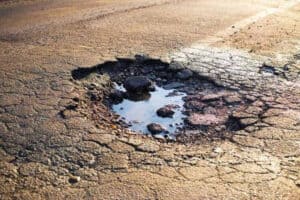Eskom spokesperson Sikonathi Mantshantsha said it was not possible for the power utility to delay the implementation.

It was a week ago President Cyril Ramaphosa said his hands are tied when it comes to the 18.65% increase in tariffs awarded to Eskom by the National Energy Regulator of South Africa (Nersa) … and even though he appealed to the power utility to suspend the increase, the reality is there is nothing he can do, say experts.
Even more worrying is his direct message to Eskom could be outside his jurisdiction and power as state president.
Speaking at the ANC’s Free State provincial conference in Bloemfontein, Ramaphosa said he had asked Eskom not to implement the 18.65% tariff hike from April.
‘Political interference’
However, energy expert Lungile Mashele said apart from the president’s actions being unprecedented, this was a clear indication of political interference which had been one of the biggest threats the power utility faced.
“I suppose he believes he can do this, because he has done it. But it’s absolutely wrong and that’s tantamount to political interference,” she said.
“What the president should have done is to obtain the Nersa decision record for the increase and then challenged it legally with counter claims. Eskom has no choice but to implement the increase.”
ALSO READ: Ramaphosa ‘out of order’ for asking Eskom not to implement increase
Mashele said the power utility could not do anything without approval from Nersa.
“I’m not even sure what this means or how Eskom would justify not increasing the tariff.”
“If there’s one person who can stop the increase it can only be the regulator. But on 1 April, they have to go through with the implementation,” she added.
“If Eskom does not implement the increase, it won’t be able to service its debts adequately or even keep up with salaries and maintenance.”
Increase will help Eskom
On Sunday, Eskom chair Mpho Makwana said Nersa’s decision on the tariff increase would go a long way in solving the liquidity challenge the power utility was facing, “and correct the gap in cost reflective tariff structure”.
Nersa spokesperson Charles Hlebela said it would take a high court decision to overturn the increase, that “Nersa cannot review its own decision”.
Eskom spokesperson Sikonathi Mantshantsha said it was not possible for the power utility to delay the implementation.
ALSO READ: UDM, Bosa and Numsa go to court to challenge electricity tariff increase
“If anyone wanted to change the decision of the regulator they must approach a court to set aside and review the decision, which is a whole legal process,” he added.
“This discussion does not even begin to arise. Electricity prices are determined by a statutory process and governed by a regulation process as directed by the Electricity Regulation Act of 2006.
“Eskom applied for an increase using a particular formula and Nersa must make a decision on what increase to award. Eskom cannot charge any other price or reverse the decision made by the regulator after a public consultation process.”
Govt is ‘used to getting involved’
However, independent energy analyst Pieter Jordaan said this did not come as a surprise because “government is used to getting involved with Eskom”.
“As much as the president may want to try and soften the burden on the consumer, there’s much more at play here, which the government needs to take into consideration,” he said.
“He’s asking this from the wrong party. Eskom cannot just suck it out of their thumb. There needs to be more looked at than just the question of asking.”
LISTEN: AfriForum to start own power company and save South Africans from Eskom
The Congress of the People (Cope) welcomed Ramaphosa’s request to Eskom and suggested it should be scrapped. “
President Ramaphosa must give instructions to Finance Minister Enoch Godongwana to make funds available for the smooth running of Eskom,” Cope spokesperson Dennis Bloem said.
“The people [are being] punished twice: on the one hand crippling load shedding, on the other, people must still pay an increased tariff. It’s unacceptable and unfair.”
Support Local Journalism
Add The Citizen as a Preferred Source on Google and follow us on Google News to see more of our trusted reporting in Google News and Top Stories.






